8 start with J start with J

As concrete examples, Clark analyzes four court disputes in depth, showing that the concept of local autonomy has very different meanings and implications in each of them. These cases—Boston's defense of resident-preference hiring policies, conflict over urban land-use zoning in Toronto, a Chicago's suburb's fight against a sewage treatment plant, and the evolution of the City of Denver's power since 1900—demonstrate that legal reasoning is not impervious to other kinds of reasoning, and the solutions provided by the courts are not unique. To ground his explorations, Clark investigates both liberalism and structuralism, showing that both are inadequate bases for determining social policy. He mounts provocative critiques of the works of de Tocqueville, Nozick, Tiebout, and Posner on the one hand and Castells and Poulantzas on the other.
This ambitious and important work will command the interest of geographers, political scientists, economists, sociologists, and legal scholars.
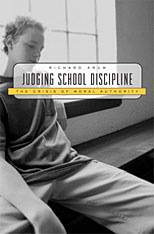
Reprimand a class comic, restrain a bully, dismiss a student for brazen attire--and you may be facing a lawsuit, costly regardless of the result. This reality for today's teachers and administrators has made the issue of school discipline more difficult than ever before--and public education thus more precarious. This is the troubling message delivered in Judging School Discipline, a powerfully reasoned account of how decades of mostly well-intended litigation have eroded the moral authority of teachers and principals and degraded the quality of American education.
Judging School Discipline casts a backward glance at the roots of this dilemma to show how a laudable concern for civil liberties forty years ago has resulted in oppressive abnegation of adult responsibility now. In a rigorous analysis enriched by vivid descriptions of individual cases, the book explores 1,200 cases in which a school's right to control students was contested.
Richard Arum and his colleagues also examine several decades of data on schools to show striking and widespread relationships among court leanings, disciplinary practices, and student outcomes; they argue that the threat of lawsuits restrains teachers and administrators from taking control of disorderly and even dangerous situations in ways the public would support.
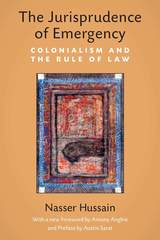
The Jurisprudence of Emergency examines British rule in India from the late eighteenth to the early twentieth century, tracing tensions between the ideology of liberty and government by law used to justify the colonizing power's insistence on a regime of conquest. Nasser Hussain argues that the interaction of these competing ideologies exemplifies a conflict central to all Western legal systems—between the universal, rational operation of law on the one hand and the absolute sovereignty of the state on the other. The author uses an impressive array of historical evidence to demonstrate how questions of law and emergency shaped colonial rule, which in turn affected the development of Western legality.
The pathbreaking insights developed in The Jurisprudence of Emergency reevaluate the place of colonialism in modern law by depicting the colonies as influential agents in the interpretation of Western ideas and practices. Hussain's interdisciplinary approach and subtly shaded revelations will be of interest to historians as well as scholars of legal and political theory.
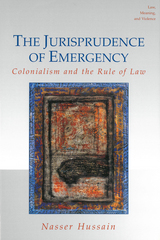
Ever-more-frequent calls for the establishment of a rule of law in the developing world have been oddly paralleled by the increasing use of "exceptional" measures to deal with political crises. To untangle this apparent contradiction, The Jurisprudence of Emergency analyzes the historical uses of a range of emergency powers, such as the suspension of habeas corpus and the use of military tribunals. Nasser Hussain focuses on the relationship between "emergency" and the law to develop a subtle new theory of those moments in which the normative rule of law is suspended.
The Jurisprudence of Emergency examines British colonial rule in India from the late eighteenth to the early twentieth century in order to trace tensions between the ideology of liberty and government by law, which was used to justify the British presence, and the colonizing power's concurrent insistence on a regime of conquest. Hussain argues that the interaction of these competing ideologies exemplifies a conflict central to all Western legal systems—between the universal, rational operation of law on the one hand and the absolute sovereignty of the state on the other. The author uses an impressive array of historical evidence to demonstrate how questions of law and emergency shaped colonial rule, which in turn affected the development of Western legality.
The pathbreaking insights developed in The Jurisprudence of Emergency reevaluate the place of colonialism in modern law by depicting the colonies as influential agents in the interpretation and delineation of Western ideas and practices. Hussain's interdisciplinary approach and subtly shaded revelations will be of interest to historians as well as scholars of legal and political theory.
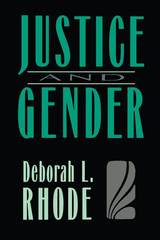

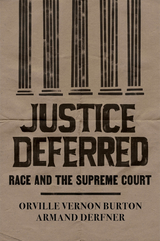
“[A] learned and thoughtful portrayal of the history of race relations in America…authoritative and highly readable…[An] impressive work.”
—Randall Kennedy, The Nation
“This comprehensive history…reminds us that the fight for justice requires our constant vigilance.”
—Ibram X. Kendi
“Remarkable for the breadth and depth of its historical and legal analysis…makes an invaluable contribution to our understanding of the US Supreme Court’s role in America’s difficult racial history.”
—Tomiko Brown-Nagin, author of Civil Rights Queen: Constance Baker Motley and the Struggle for Equality
From the Cherokee Trail of Tears to Brown v. Board of Education to the dismantling of the Voting Rights Act, Orville Vernon Burton and Armand Derfner shine a powerful light on the Supreme Court’s race record—uplifting, distressing, and even disgraceful. Justice Deferred is the first book that comprehensively charts the Supreme Court’s race jurisprudence, detailing the development of legal and constitutional doctrine, the justices’ reasoning, and the impact of individual rulings.
In addressing such issues as the changing interpretations of the Reconstruction amendments, Japanese internment in World War II, the exclusion of Mexican Americans from juries, and affirmative action, the authors bring doctrine to life by introducing the people and events at the heart of the story of race in the United States. Much of the fragility of civil rights in America is due to the Supreme Court, but as this sweeping history reminds us, the justices still have the power to make good on the country’s promise of equal rights for all.
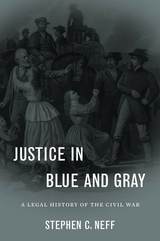
Stephen C. Neff offers the first comprehensive study of the wide range of legal issues arising from the American Civil War, many of which resonate in debates to this day.
Neff examines the lawfulness of secession, executive and legislative governmental powers, and laws governing the conduct of war. Whether the United States acted as a sovereign or a belligerent had legal consequences, including treating Confederates as rebellious citizens or foreign nationals in war. Property questions played a key role, especially when it came to the process of emancipation. Executive detentions and trials by military commissions tested civil liberties, and the end of the war produced a raft of issues on the status of the Southern states, the legality of Confederate acts, clemency, and compensation. A compelling aspect of the book is the inclusion of international law, as Neff situates the conflict within the general laws of war and details neutrality issues, where the Civil War broke important new legal ground.
This book not only provides an accessible and informative legal portrait of this critical period but also illuminates how legal issues arise in a time of crisis, what impact they have, and how courts attempt to resolve them.
READERS
Browse our collection.
PUBLISHERS
See BiblioVault's publisher services.
STUDENT SERVICES
Files for college accessibility offices.
UChicago Accessibility Resources
home | accessibility | search | about | contact us
BiblioVault ® 2001 - 2024
The University of Chicago Press









